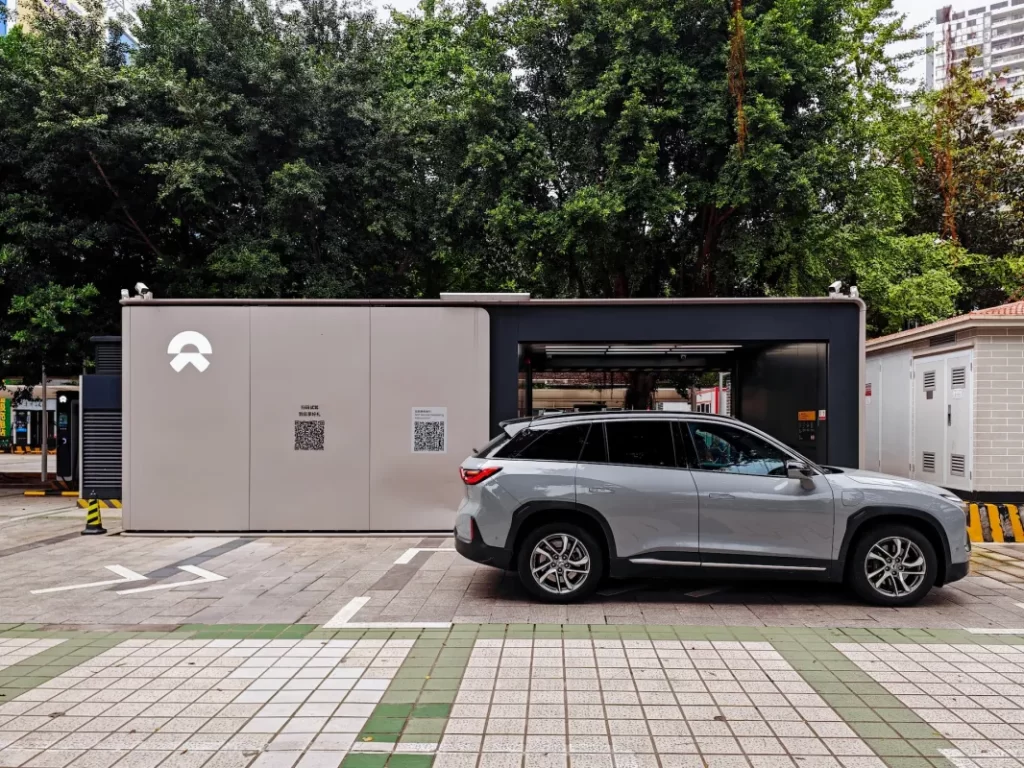
Shortly after commencing production on its new semi-solid-state battery packs, Chinese automaker Nio announced it would open up trials of its new tech to the public ahead of its official rollout in the country, as Electrek reported.
This is exciting news, as semi-solid-state batteries are still relatively new on the EV market, and they offer a much safer, lighter, and more energy-dense battery product.
The technology differs from the common lithium-ion version by using a solid electrolyte material in conjunction with the liquid or gel electrolytes usually found in the batteries. This gives them greater thermal stability, which allows for faster recharging.
Testing ran through May and applied primarily to users of the company’s vehicle rental service, Nio Destination. According to Electrek, customers who rented a Nio BEV for three days were some of the first to test the semi-solid state battery tech at no extra charge.
Other lucky Nio EV users received the upgrade at random when they visited a Nio Power charging and swapping station. Instead of plugging in and waiting, these novel service locations take only three minutes to swap in a new, fully charged battery.
This gives the company a useful platform to test the new technology in the real world. As of August 2022, Nio had 1,071 swap stations throughout China and around 20 scattered throughout Europe, although those will primarily serve as complementary public charging solutions for now.
Other automakers have also signed deals to explore and develop similar products, including Toyota, Mercedes, and Volkswagen, according to PCMag.
CATL, another well-known battery maker, also has a semi-solid-state battery heading into production. While the Nio version aims to provide 360 watt-hours per kilogram, CATL plans to target 500 watt-hours per kilogram.
In parallel with the emergence of semi-solid-state battery production, some companies are working to build recycling processes. Earlier this year, Massachusetts-based 24M announced its Liforever technology set, which is designed to recover and reuse materials that have previously been discarded.
The company’s CEO, Naoki Ota, stated, “Better battery recycling is essential for a sustainable energy future.”
All of this exciting progress in battery technology should ultimately alleviate consumers’ range anxiety, undoubtedly making it easier for more people to make their next car an EV.




























